- Home
- Terry C. Johnston
Shadow Riders: The Southern Plains Uprising, 1873 (The Plainsmen Series) Page 23
Shadow Riders: The Southern Plains Uprising, 1873 (The Plainsmen Series) Read online
Page 23
“What, William? What would you do? Go off on your own into that savage country…” and Pierce jabbed a finger down on the map usually protected from view, wrapped in the blood-colored velvet he began to stuff inside the long leather map tube, “go off by yourself into that land teeming with evil, grinning Comanches?”
Graves grinned that charming, handsome smile of his, pushing one of the black curls back out of his eyes. Pierce hated Graves for his good looks. It seemed the wealthy did have it all.
“Simon … dear Simon. One of these days, we won’t have to worry about needing anyone else to help us. One of these days—and very soon—you and I will be rich enough … we’ll own our own goddamned army—because you and I will own and run our own goddamned country!”
Chapter 22
Late October 1873
“You … you want me to guide you two where?”
Jack Stillwell had trouble with few of his faculties, and hearing simply wasn’t one he had ever experienced problems with in his life. In fact, his acute sense of hearing had protected both him and old Pierre Trudeau back to ’68 when they walked more than a hundred miles on foot through Cheyenne-infested high plains wilderness to deliver word that the survivors of Major Sandy Forsyth’s fifty white scouts were pinned down on a nameless island in the middle of a nameless river.*
So Jack had heard Simon Pierce plain enough the first time.
“I said we have changed our plans, Mr. Stillwell,” said the older man. “Or, more to the point—our plans have been changed for us. We need you to take us north by west from here. At each night’s camp we’ll review with you the march for the following day.”
“You’ll review for me the march for the following day?” Jack asked, disbelieving his ears, as good as they were.
“Every stream and creek and river we cross,” Pierce went on. “We’ll tell you where to go from here.”
“I’d like to tell you where you can go, Pierce,” Stillwell snapped as Seamus Donegan came up, having finished saddling his horse for departure. “Both of you with your starched collars and nasty tones.”
“To Hell, I imagine,” William Graves said in that engagingly civil tone of his.
“As a matter of fact—”
“You aren’t planning on going down toward the Rio Grande and Mexico now?” Donegan asked the two easterners.
Pierce glanced at him as if the Irishman was an unwanted intruder. “No. We no longer need to explore territory south toward Mexico.” He turned on Stillwell. “Are you going to lead us, Mr. Stillwell? Or am I going to have to acquire the services of another guide here at Fort Richardson or in nearby Jacksboro?”
“There’s a lot of ’em might think about taking your money and guiding you from here south to the Rio Grande,” Jack told them. “But if you’re hoping to find a guide to lead you northwest of here—I doubt you’ll find any takers.”
“The money’s very good,” Graves added, regarding an old scab on the back of his hand.
Stillwell gazed a long time at the strikingly handsome, black-headed William Graves. “I don’t doubt that the money is very good. And I planned on having me some of it. But I plan on living long enough to enjoy that money you two say the government’s going to pay me for guiding you. So, thanks … but no thanks. You’ll have to find yourself another fool.”
Stillwell had turned, shoving past a bewildered Donegan, the Irishman’s face showing only confusion, when Simon Pierce’s voice stopped him in his tracks among the pack animals Jack was breaking out.
“The money aside, Mr. Stillwell … you still understand this is government business.”
“It might be, Pierce,” Jack replied, flinging his voice over his shoulder as he worked to free the knots binding his belongings to the cross-buck pack saddle. “But it’s none of my business any longer.”
“That means the federal government, Stillwell,” Graves spoke this time. “The army. Federal prison. And I have the power to put you there. Do you understand now, Stillwell?”
Jack turned, feeling his neck gone hot with rage. Nothing else could possibly be the cause, as the sun had barely peeked over the horizon this hazy, cloudy morning. “I see your point, Mr. Graves,” he replied, striding back up to the civilian with a grin that evidently put both Graves and Pierce at ease. “If I don’t guide you—you’ll have me arrested and thrown in Mackenzie’s guardhouse on some trumped-up charge, because you’ve got the power to make these soldiers dance.”
Pierce wagged his head, rubbing his hands together and clearly enjoying his advantage. “Not some imaginary charge—a very real one. You were hired by the federal government to do a job. You don’t walk out in the middle of that job without suffering the consequences.”
“C’mon, Jack,” Seamus said. “It’s nothing to become riled about. In fact, I’m relieved we aren’t marching south all the way to Mexico. Never really wanted to see the place anyway, meself.”
Jack looked at Donegan. “You don’t realize where they want us to head, do you?”
Seamus shrugged. “Northwest of here. That makes it Texas, unless you push all the way to Colorado. And I’ve been there before.”
Stillwell shook his head. “We’ll never make it to Colorado Territory, you dumb Irishman.”
“Why not?” Donegan’s brow knitted up. “What’s out there in Texas got you so riled up?”
“The federal government fellas back in Washington City may think of that stretch of country out there as Texas. Everyone might call it Texas. Yeah, and Governor Davis and his Texicans may think of that panhandle as Texas too. But that don’t change things a hoot when it comes to who really runs things out there.”
“Only buffalo and a few old Indians on their last legs—unable to relinquish their ancient practices,” Pierce sneered, then chuckled with Graves.
“There’s buffalo there, no doubt about it,” Jack said.
“I’m hungry already,” Donegan said, apparently not understanding.
“But Seamus—the Indians out there aren’t old. And there’s more’n just a few of ’em.”
“What bands roam and hunt out there, Jack?” Donegan asked, his eyes gone serious.
“Renegade Kiowa—young warriors bolting off the reservation from Satanta’s and Lone Wolf’s bands.” He waited a heartbeat. “And the Kwahadi Comanche. They’re led by Quanah Parker—and that’s one chief never come in for a white man’s present, or eaten a mouth of white man’s food yet that I know of—unless he ate it from a settler’s wagon or soddy before his warriors burned it to the ground.”
“Yes, Quanah Parker is the name,” Pierce replied. “He’s the leader of the Antelope Eaters band that roams the Llano Estacado.”
“Llano?” Donegan asked.
“Staked Plains,” Pierce answered.
“In all likelihood,” Graves said, “the landform was named for the tall stakes that Coronado had his soldiers drive into the ground to find their way back out of that trackless, mapless wilderness.”
“Hold on a minute,” Seamus said, shaking his head dully. “You want Stillwell to lead you someplace where some guy named Coronado put some stakes in the ground to find his own way back out? How can Stillwell guide you if this Coronado needed some bleeming wooden stakes to lead him back out? And why don’t you just go find this Coronado fella to guide you in there—so you’ll leave me friend Stillwell alone.”
Jack watched Pierce and Graves chuckle at that, before Pierce got serious once more.
“We’ve got work to do, gentlemen,” Pierce said. “There is no one else who will do. And, for your information, Mr. Donegan—Coronado is currently unavailable to guide us.”
Graves laughed sharp and harsh, as if it were his own private joke shared only with Pierce. “He’s dead—some three hundred years, Mr. Donegan.”
“Three hundred—”
“Are you going to guide us, Mr. Stillwell?” Pierce asked, cutting off all other conversation. “Or shall I call for Colonel Mackenzie so that I can prefer federal charge
s against you both?”
“You don’t understand, Pierce. What you’re asking—”
“I understand you aren’t going to guide us.” He turned and immediately started toward the post commander’s headquarters.
Stillwell snagged the older man’s arm in desperation, hoping in some way to convince him of the danger. “You don’t have no idea what you’re going into, Pierce.” The civilian glanced down at Jack’s hands on his arm as the scout continued, “That’s bad country out there. Never really been to the Llano myself, but I know enough who have, or knowed those who never came back.”
“We have an escort, Mr. Stillwell.”
“Them soldiers are just more honey for the bees, Pierce. Soldiers attack Injuns. And Comancheros. And the Injuns and Comancheros turn things around a time or two.”
“What are Comancheros?”
Graves was there to answer, startling both Pierce and Stillwell with this obscure bit of knowledge for a rich man from the northeast. “Comancheros are Mexican renegades, Simon. Am I right, Mr. Stillwell?” He waited until Jack nodded. “They are the middlemen of the southern plains. Dealing in stolen property of all descriptions: cattle, horses, trade goods. Even human flesh.”
“Human flesh?” Pierce asked.
“Slave trade … human misery—prostitution, if you will,” Graves replied, a twinkle in his eye.
Pierce turned to Stillwell, his eyes boring into the young scout’s. “Are these Comancheros any worse than Parker’s Comanches or the renegade Kiowa running off the reservation?”
“No, not really. They’re no worse. Like the Comanche, the Comancheros love killing just for the sake of killing.”
“Then we won’t be deterred, Stillwell,” Graves said, turning on Pierce. “Simon, let’s get this guide placed in the guardhouse so we can acquire the services of another.”
“You’re asking everyone who rides along with you to take a gamble on getting killed out there,” Stillwell pleaded, as afraid of the guardhouse as he was of what was out there on the Staked Plains. “It’s suicide you’re asking. There’s more murderers and butchers out there than there is fat, blood-sucking ticks on an old bull’s hide.”
“Are you guiding us or not, Mr. Stillwell?” Pierce snapped. “We don’t have time to stand here talking about buffalo hides with you.”
“That’s Injun country out there. Give to the Comanche and Kiowa and Southern Cheyenne fair and square by treaty.”
“What’s your point, Stillwell?” asked Graves.
His eyes pleaded with the two civilians. “White men aren’t allowed out there in Injun country.”
Pierce laughed a moment. “White men may not be allowed, Stillwell. But the army is. And where you’re going to guide us, that land—that great buffalo range—is still owned by the United States government. Not by some smelly, red savage reeking of urine and tallow. It belongs to us, Stillwell—men like Graves and me. Now, are you two guiding us there or not?”
Jack looked at Donegan a moment before answering, then turned back to the two government men.
“If you’re dead set on rooting around until you find something out there in Kwahadi country, I’ll guide you where you want to go. But I want you both to know you’re probably going to come up with more out there than either of you ever bargained for.”
Pierce smiled broadly and clapped his hands together, excited as a child on Christmas morning. “That’s exactly what we want to do on this journey, Mr. Stillwell. To come up with more than either of us ever bargained for.”
* * *
North to the Red River they followed Jack Stillwell. After crossing into the southern fringe of the Kiowa-Comanche reservation, they marched along the north bank of the Red, an ancient trail that took them west by northwest, ever toward the northern reaches of the Staked Plain, the great wilderness haunted by the Kwahadi Comanche and the Kiowa.
That Indian country had now become the southernmost reaches of the “Great Slaughter Pen,” as the buffalo range was becoming known. With alarming rapidity the animal was disappearing from its normal ranges. Two years before that fall, the U.S. Biological Survey had sent out an expedition staffed with professors from Yale University to survey the great Republican herd roaming along the Platte River in Nebraska. George Bird Grinnell was camped west of Fort Kearney when he had the chance to count what remained of the herd—no less than 500,000 head.
Yet at the rate the hide hunters were cutting through the herds, Grinnell estimated the buffalo were nonetheless clearly in their final days.
In 1872 a government reconnaissance party had marched south from Fort Dodge to Camp Supply in Indian Territory and had never been out of sight of buffalo. Hide hunters were as thick as ticks along the Arkansas River itself, their big-bore rifles bringing down the beasts as they came to water. By the end of that season, when the buffalo migrated south for the winter, both banks of the Arkansas reeked with rotting carcasses for more than fifty miles in either direction.
By the next year the hide-men were having to contemplate the wisdom of moving deeper and deeper into Indian country, south of the dead line.
A minimum of two thousand hunters had spread across the buffalo range, from the Dakotas to the Staked Plain when the green grass burst forth from the brown breast of the prairie that spring of 1873. Many of those never did succeed as hunters: either their bones lay bleaching beneath the sun that year—a victim of one war-party or another—or they had simply “seen the elephant” and gave up the notion of making their fortune in hides.
Instead, most men with families to feed turned once more to farming. Anyone with around fourteen dollars, the price of a filing fee, could stake his claim to 160 acres of grassland where he would park his wagon, unhitch the milk cow, set free the chickens to scratching for bugs in the dirt, and begin digging at the tough soil to build a soddy on those immense plains. Better to face the incessant wind and rattlesnakes and grasshopper plagues and the alkali water … than face the screaming Comanche and the Kiowa.
Because of the exploding numbers of hunters, more than a few citizens on the western frontier began to express alarm. While Congress debated but never did pass any legislation banning the hunting of buffalo, Kansas, Wyoming, Idaho and Montana each passed laws either restricting or outlawing the killing of buffalo altogether. Lobbying against any attempt at this sort of legislation proved strong: the hide hunters had powerful and well-heeled allies in the railroad barons and their millions. For most months out of the year, at most railroad sidings in Nebraska and Kansas, rows of huge sheds stood filled to their rafters with not only hides but the bones as well—waiting for empty freight cars and a trip east.
If the Great Slaughter Pen was to be closed down, the railroads stood to lose a fortune.
But in the end it was not the railroad barons’ money that turned the tide in Texas—it was the unvarnished sentimental appeal of none other than Lieutenant General Philip H. Sheridan himself.
When he learned that the Texas Legislature was preparing to enact a bill to outlaw the buffalo hunter within the state boundaries, Sheridan was carried nonstop, night and day by rail to Austin, there to stand before the assembly of legislators and protest the impending law. Impassioned, Sheridan flung his words at the lawmakers, telling them in no uncertain terms that instead of driving the hide hunters from their state, they should instead issue a bronze medal to each one who had crossed the dead line with his Sharps rifle.
“On one side of that medal you should engrave the image of a dead buffalo,” Sheridan roared in their assembly. “On the other, the image of a starving Kiowa or Comanche!”
The bandy-legged Irishman repeatedly pounded his fist on the rostrum for quiet from the assembly he was hoping to sway with his sentiment.
“These hide-men have done more in the last two years, and will do more in the next year, to settle the vexed Indian question than the entire regular army has done in the last thirty years. The buffalo hunters are destroying the Indians’ commissary; and it is a w
ell-known fact that an army losing its base of supplies is placed at a great disadvantage. Send them powder and lead, if you will, but for the sake of lasting peace, let them kill, skin and sell until the buffaloes are exterminated! Then your prairies can be covered with speckled cattle and the festive cowboy, who follows the hunter as a second forerunner of an advancing civilization.”
There was little debate when Sheridan stepped from the dais. The legislation once thought to be enacted into law failed to pass and the little general passed out cigars to the back-slapping state legislators.
The Secretary of the Interior, Columbus Delano, had also been deluged with complaints against the buffalo men. Yet he too approached the matter with clear-headed logic when he told his critics that the quicker the end to the buffalo, the quicker the Indian would learn to appreciate the merits of hard work and Christian industry.
There were few in that fall of 1873 who would take up the clarion on behalf of the Plains Indian. It was therefore left for the Kiowa and Cheyenne and Comanche to defend for themselves the hunting ground they had been granted by treaty.
The buffalo that roamed that great expanse of the Staked Plain belonged to the Indian who had for generations hunted them. To the nomadic horsemen, any white hunters who came to slaughter the beasts for their hides and occasionally the tongues were nothing more than common thieves. And the Indian had had himself enough experience living near the white man and his settlements to know what the white man did with rustlers and trespassers and thieves.
The Kiowa and Cheyenne and Comanche were learning at least one important lesson from the white man in what should be done to any and all of those trespassers who came to butcher the buffalo.
They would kill them.
Chapter 23
Moon of Deer Rutting, 1873
The skies had turned a cold blue, and that meant the yellowleg soldiers would likely not be stalking the villages.
The Kwahadi had been harried for each of the past three summers, so much so this past summer that the bands had spent little time together after the great sun-gazing dance. Better that the bands disperse across the great vastness of the Staked Plain, to confuse the Tonkawa trackers who scouted for the yellowlegs.

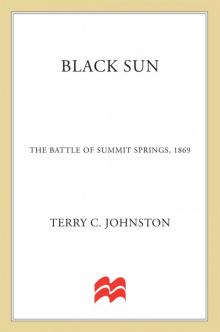 Black Sun, The Battle of Summit Springs, 1869
Black Sun, The Battle of Summit Springs, 1869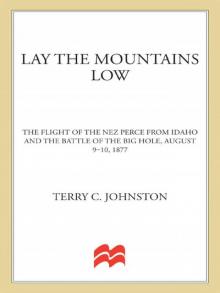 Lay the Mountains Low
Lay the Mountains Low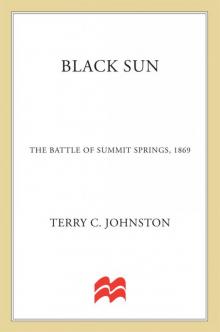 Black Sun: The Battle of Summit Springs, 1869 (The Plainsmen Series)
Black Sun: The Battle of Summit Springs, 1869 (The Plainsmen Series)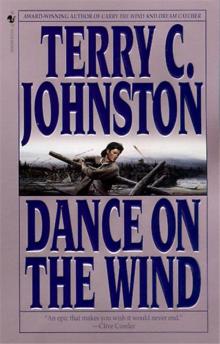 Dance on the Wind tb-1
Dance on the Wind tb-1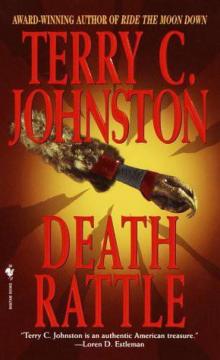 Death Rattle tb-8
Death Rattle tb-8 The Stalkers
The Stalkers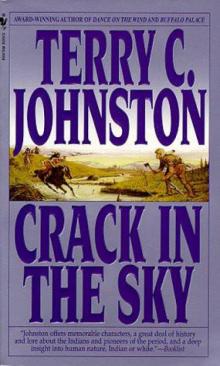 Crack in the Sky tb-3
Crack in the Sky tb-3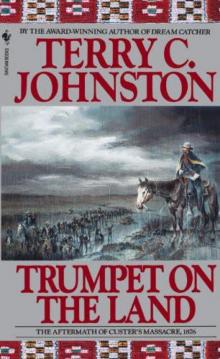 Trumpet on the Land: The Aftermath of Custer's Massacre, 1876 tp-10
Trumpet on the Land: The Aftermath of Custer's Massacre, 1876 tp-10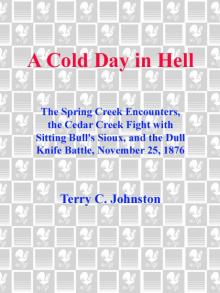 A Cold Day in Hell
A Cold Day in Hell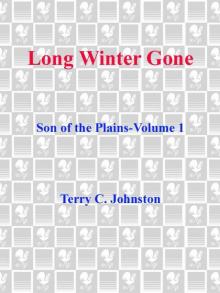 Long Winter Gone: Son of the Plains - Volume 1
Long Winter Gone: Son of the Plains - Volume 1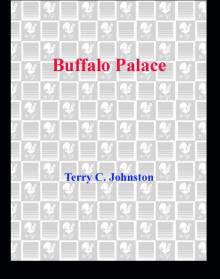 Buffalo Palace
Buffalo Palace Cries from the Earth
Cries from the Earth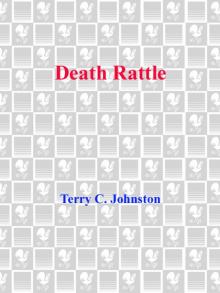 Death Rattle
Death Rattle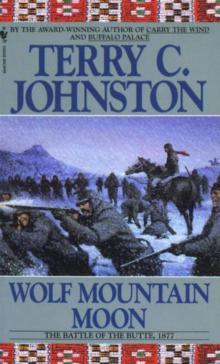 Wolf Mountain Moon: The Battle of the Butte, 1877 tp-12
Wolf Mountain Moon: The Battle of the Butte, 1877 tp-12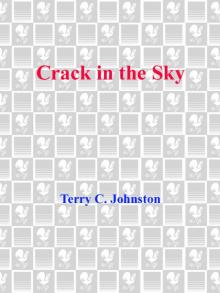 Crack in the Sky
Crack in the Sky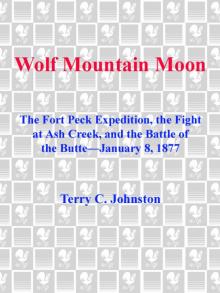 Wolf Mountain Moon
Wolf Mountain Moon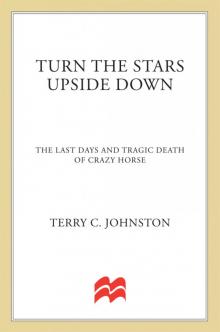 Turn the Stars Upside Down: The Last Days and Tragic Death of Crazy Horse
Turn the Stars Upside Down: The Last Days and Tragic Death of Crazy Horse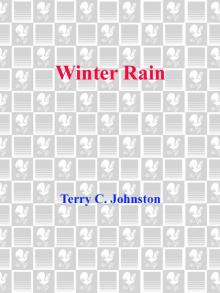 Winter Rain
Winter Rain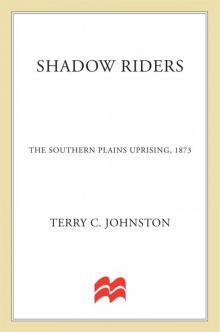 Shadow Riders: The Southern Plains Uprising, 1873 (The Plainsmen Series)
Shadow Riders: The Southern Plains Uprising, 1873 (The Plainsmen Series)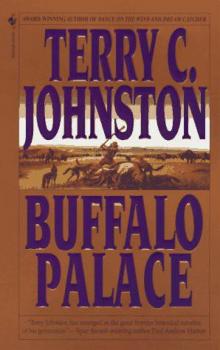 Buffalo Palace tb-2
Buffalo Palace tb-2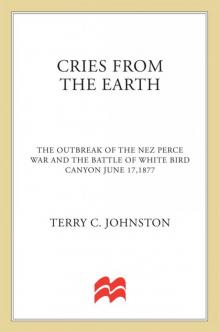 Cries from the Earth: The Outbreak Of the Nez Perce War and the Battle of White Bird Canyon June 17, 1877 (The Plainsmen Series)
Cries from the Earth: The Outbreak Of the Nez Perce War and the Battle of White Bird Canyon June 17, 1877 (The Plainsmen Series)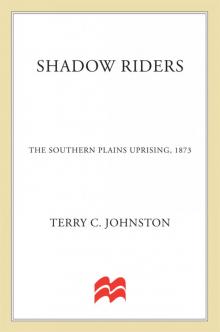 Shadow Riders, The Southern Plains Uprising, 1873
Shadow Riders, The Southern Plains Uprising, 1873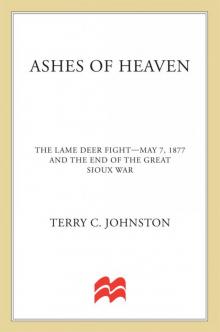 Ashes of Heaven (The Plainsmen Series)
Ashes of Heaven (The Plainsmen Series)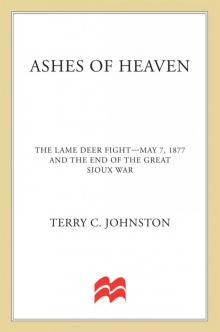 Ashes of Heaven
Ashes of Heaven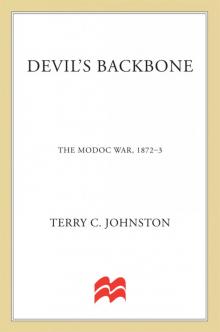 Devil's Backbone: The Modoc War, 1872-3
Devil's Backbone: The Modoc War, 1872-3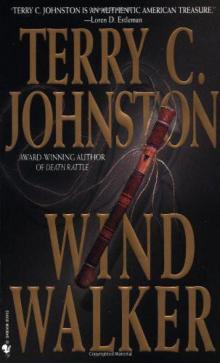 Wind Walker tb-9
Wind Walker tb-9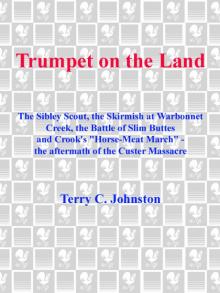 Trumpet on the Land
Trumpet on the Land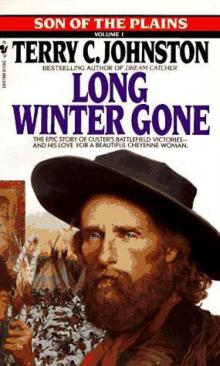 Long Winter Gone sotp-1
Long Winter Gone sotp-1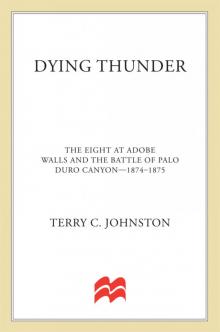 Dying Thunder
Dying Thunder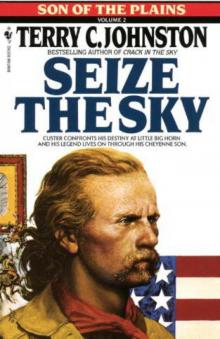 Seize the Sky sotp-2
Seize the Sky sotp-2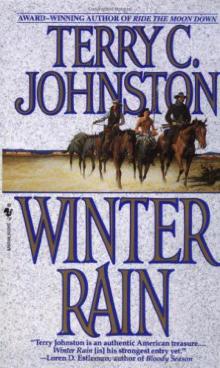 Winter Rain jh-2
Winter Rain jh-2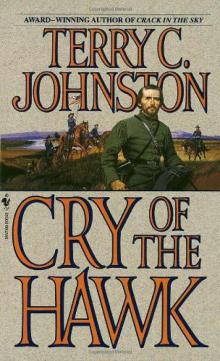 Cry of the Hawk jh-1
Cry of the Hawk jh-1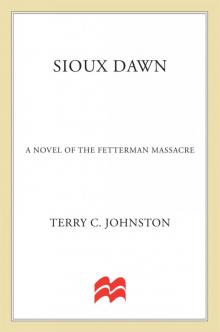 Sioux Dawn, The Fetterman Massacre, 1866
Sioux Dawn, The Fetterman Massacre, 1866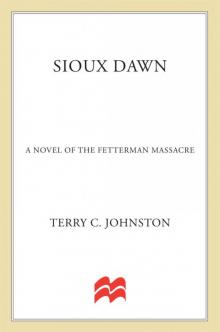 Sioux Dawn: The Fetterman Massacre, 1866 (The Plainsmen Series)
Sioux Dawn: The Fetterman Massacre, 1866 (The Plainsmen Series)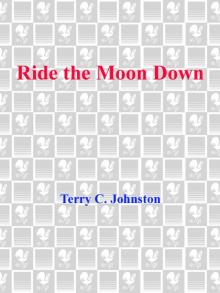 Ride the Moon Down
Ride the Moon Down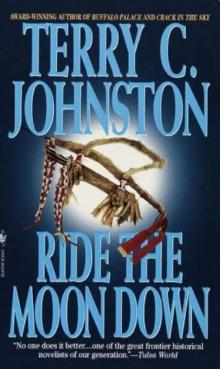 Ride the Moon Down tb-7
Ride the Moon Down tb-7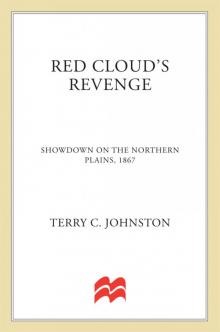 Red Cloud's Revenge
Red Cloud's Revenge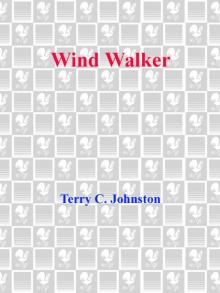 Wind Walker
Wind Walker